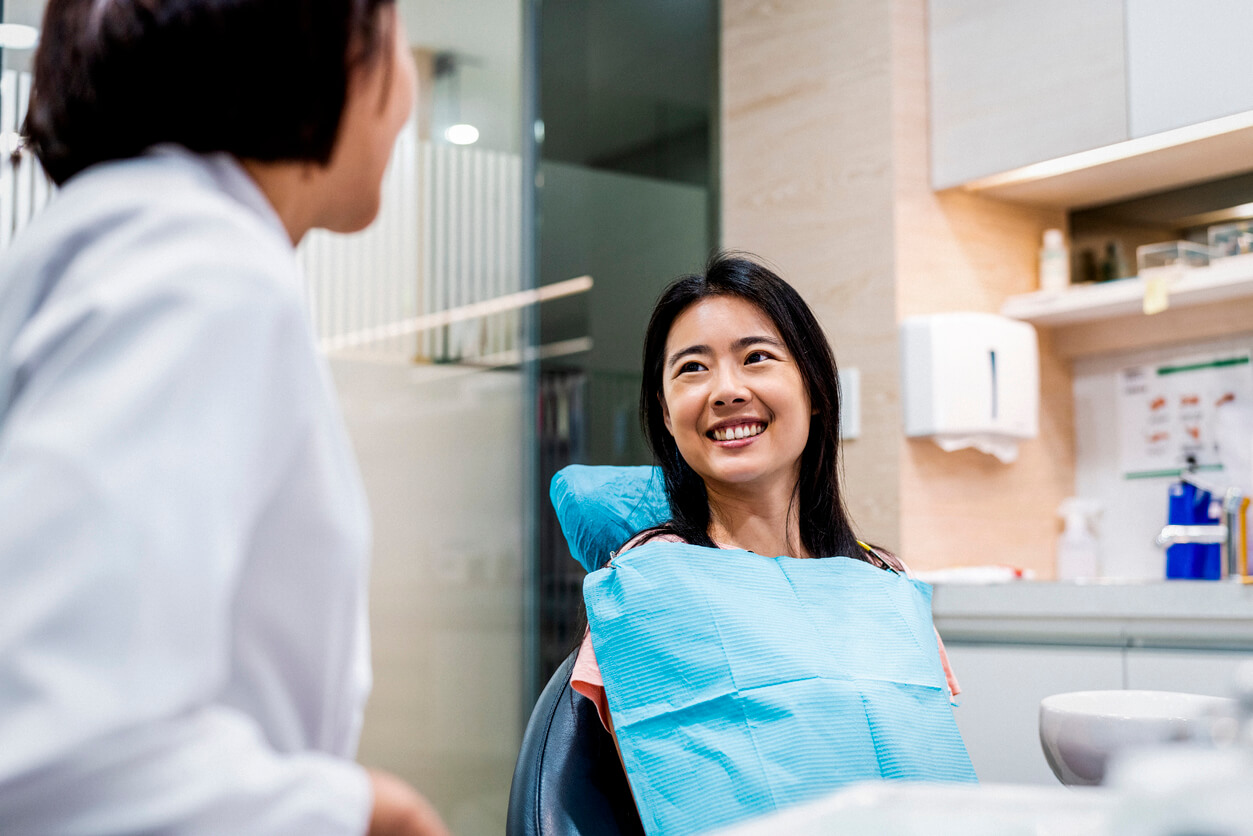After several years of practicing dentistry, I have had the pleasure of working with a variety of patients from the Briarwood and Great Neck areas. While each of these individuals is unique and has customized treatments, I have noticed some similarities between many of them: curiosity. I’m always happy when a patient is comfortable enough to ask me questions about their oral health. First, it is an opportunity to educate them and help them improve their mouth. Secondly, it indicates that they are interested in and care for their teeth and gums. Below are some common questions that I get from clients. Perhaps you have considered asking them, too. I’m also including some general guidance to help answer them. Still, if you have additional questions or concerns, please reach out so we can discuss them in greater detail at your next appointment.
How can I get straighter teeth?
It’s common to feel insecure about your smile, especially if you have a few or a whole set of crooked teeth. The fact of the matter is that around 70% of the US population is impacted by alignment issues. Beyond affecting your looks, misalignment can also affect your health. Crooked teeth can potentially lead to decay, gum disease, jaw pain, headaches, or tooth loss. Fortunately, modern dentistry has created various paths for aligning teeth. Traditionally, braces and retainers served as the go-to treatment, and they straightened out teeth using wires and frequent adjusting. More recently, dentists, including myself, have leaned toward the use of clear aligners. They are convenient, transparent, and completely removable, offering flexibility to the individual using them. Aligners are similar to mouthguards in the sense that they slip into your mouth. The aligners slowly move your teeth to a desired shape. Once that shift is complete, a new liner is cast to push them a little bit further. The process continues until your smile is just the way you want it. Because they are so discreet, many adults opt to use this process, but it is also effective for teens and young adults.
Are X-rays necessary?
It’s understandable that X-rays can seem a bit intimidating during your regular exam. But modern machines, like the ones used in our offices, have up to 90% less radiation than traditional machines do. At the same time, they offer superior image quality. We will never ask you to do anything that you are uncomfortable with, and all treatment options will be explained and discussed before taking place. Keep in mind, however, that X-rays allow us to look deep into the insides of your teeth, offering a view that’s more comprehensive and accurate than looking with the naked eye alone. Using this technology, we can detect issues before they get worse. As with most health matters, the sooner you catch something, the easier it is to repair or control.
Should I stop eating ___?
I left this line blank because foods and drinks of concern seem to vary from patient to patient. Some ask about sugary sweets, while others are more worried about coffee and red wine. The fact of the matter is that your teeth are exposed to a variety of potentially risky consumables on a daily basis. This can be anything from ice cubes to saltwater taffy! The trick is to be mindful. There’s no sense in over-indulging in anything, let alone something that can cause damage to your teeth. When possible, opt for healthy snacks and avoid crunching down on tough, solid materials. Another great rule of thumb is to brush your teeth after every meal. To make it easier, consider keeping toothpaste and a toothbrush in your purse or desk, and make sure your kids have them handy whether they are at home, at school, or at a sleepover. There’s no need to drastically modify your diet if you keep preventative care at the forefront of your mind.
There’s no way I could include all the questions that I hear in our offices, and that’s ok. If we’ve missed yours or you would like more information, don’t hesitate to contact us today!

